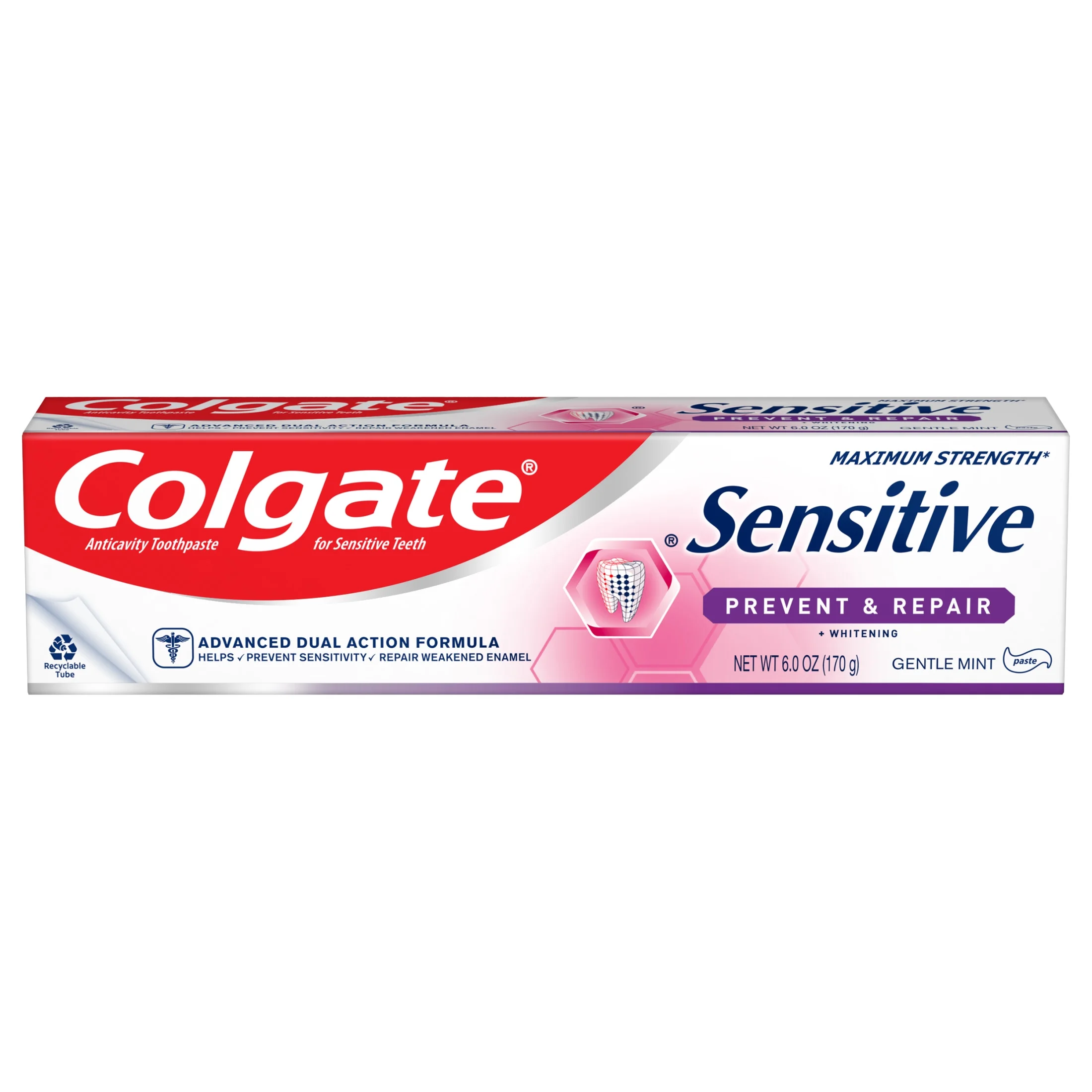
Best Sensitive Toothpaste: A Comprehensive Guide
Best Sensitive Toothpaste: A Comprehensive Guide
Sensitive teeth can present a significant challenge for many individuals. Finding the right toothpaste becomes essential in managing discomfort. This guide offers insight into the best sensitive toothpaste options available today. Understanding the ingredients and benefits of these products will help make an informed decision.
Understanding Tooth Sensitivity
Tooth sensitivity occurs when the underlying layer of the tooth, known as dentin, becomes exposed. This may result from gum recession, enamel wear, or cracks in the teeth. Various triggers, such as hot, cold, sweet, or acidic foods, can exacerbate the sensitivity. Consequently, individuals with this condition often seek relief through dietary modifications and dental care. Sensitive toothpaste can offer a solution by providing a protective barrier to the dentin.
Moreover, many sensitive toothpastes contain specific ingredients that aid in desensitizing the nerves within the teeth. These ingredients may include potassium nitrate or strontium acetate. They work by reducing the transmission of pain signals to the brain. In addition to these active ingredients, some sensitive toothpastes also incorporate fluoride to help strengthen enamel. Strengthening enamel is critical in protecting against further sensitivity and tooth decay.
Regular use of the best sensitive toothpaste can lead to meaningful improvements over time. Most users report a noticeable reduction in pain and discomfort after consistent use. Transitioning to sensitive toothpaste is a simple yet effective strategy. Incorporating these products into daily oral hygiene routine can foster long-term benefits for sensitive teeth.

Key Ingredients to Look For
When exploring options for sensitive toothpaste, it’s essential to understand the key ingredients that can make a difference. Potassium nitrate is one of the most commonly found ingredients. This compound works by calming the nerves inside the teeth, providing relief from discomfort. Furthermore, it can be effective even after a brief period of use.
Another beneficial ingredient is strontium acetate. Like potassium nitrate, it helps block pain signals to the nerves. Its incorporation into toothpaste formulations can enhance overall effectiveness in addressing sensitivity. Fluoride also plays an integral role in sensitive toothpaste. It helps to strengthen the enamel over time and can alleviate pain associated with sensitivities.
Some users prefer natural ingredients. Many brands offer formulations that include herbal extracts like aloe vera and chamomile. These natural options provide soothing effects while maintaining oral health. Additionally, baking soda can effectively neutralize acids, further protecting against sensitivity.
Knowing the ingredients in sensitive toothpaste can guide informed decisions. Not every product on the market will provide the same benefits. Therefore, it’s crucial to choose toothpaste that aligns with individual needs. Transitioning to the best sensitive toothpaste becomes an empowered choice.

Top Sensitive Toothpaste Brands
Several reputable brands offer effective sensitive toothpaste formulations. Crest, Sensodyne, and Colgate are among the leading names in this sector. Each brand presents unique offerings tailored for sensitive teeth. For instance, Sensodyne is specially designed for individuals suffering from sensitivity. Many users find it notably effective in providing quick relief.
Crest also offers a range of sensitive toothpaste options. Their formulations often contain fluoride and other effective desensitizing agents. Users frequently report positive experiences with their products. Colgate’s Sensitive Pro-Relief line utilizes arginine technology. This innovative approach helps to seal exposed dentin and block pain.
It’s also worthwhile to explore newer brands emerging in the sensitive toothpaste market. Many of these brands prioritize natural ingredients and sustainable practices. For instance, brands like Tom’s of Maine and Jason Natural offer options that are free from artificial flavors and preservatives. Selecting a brand that resonates with personal values can enhance the purchasing experience.
Notably, everyone’s sensitivity experience is unique. Therefore, individual preferences and results may vary. Users should always consult with their dentist for personalized recommendations. Trying different brands may help uncover the best sensitive toothpaste tailored to individual needs.
How to Transition to Sensitive Toothpaste
Switching to sensitive toothpaste can be a straightforward process. However, taking specific steps can enhance the transition effectively. First, consider gradual introduction. Starting with a sensitive toothpaste as a supplement to regular toothpaste can ease the change. Ultimately, this will help users gauge effectiveness before fully committing.
Pay attention to how the mouth and teeth respond during the initial weeks. If noticeable improvements occur, continue full-time use of the sensitive variant. Consistency is key for long-term relief. Users should commit to regular brushing twice daily with the newly selected toothpaste.
Additionally, combining sensitive toothpaste with other oral care products can maximize benefits. Using a soft-bristled toothbrush can help minimize further irritation. Overly aggressive brushing can exacerbate sensitivity issues. Complementing the toothpaste with mouthwash designed for sensitive teeth can also enhance the regimen.
Maintaining communication with the dental care provider remains crucial. Regular check-ups help in monitoring progress and effectiveness. A dental professional can recommend further strategies to manage sensitivity based on individual needs. Ultimately, a proactive approach to dental health will yield the best results.

Brushing Techniques to Reduce Sensitivity
Proper brushing techniques play an essential role in managing sensitive teeth. Gentle brushing is critical to minimizing irritation and damage. Aggressive brushing can wear down enamel over time, exacerbating sensitivity. Thus, switching to a soft-bristled toothbrush is widely recommended.
Positioning the toothbrush at a 45-degree angle to the gums helps minimize trauma. This technique allows for effective plaque removal without causing undue pressure. Users should brush in a circular motion rather than back-and-forth scrubbing. This technique reduces the risk of enamel wear and recession.
Spending at least two minutes brushing ensures thorough cleaning, especially for sensitive areas. Taking time can provide a more effective cleaning experience. Additionally, using toothpaste designed specifically for sensitive teeth enhances the overall oral hygiene process.
Rinsing the mouth with warm water post-brushing can soften any remaining toothpaste residue. This action contributes to an overall calming effect, especially after using sensitive toothpaste. Regularly incorporating these brushing techniques will promote a healthier mouth while addressing sensitivity.
Managing Diet for Sensitive Teeth
Diet influences oral health significantly, especially for individuals with sensitive teeth. Certain foods and beverages can lead to discomfort and aggravate sensitivity. Moreover, acidic foods and drinks can erode enamel over time. As such, avoiding highly acidic options like citrus fruits and sodas is advisable.
Dairy products like yogurt and cheese can help neutralize acidity and strengthen enamel. Incorporating these foods into the diet supports overall dental health. High-fiber fruits and vegetables also promote healthy saliva production. Saliva plays a protective role, helping to remineralize and buffer against acids.
Additionally, reducing sugar intake can protect against cavity formation and, consequently, sensitivity. Sugars provide fuel for harmful bacteria in the mouth, leading to decay. Opting for sugar-free alternatives can mitigate this risk.
Staying hydrated is also vital. Drinking plenty of water helps wash away food particles and acids. Increasing water intake can help maintain a healthy balance in the mouth. Ultimately, mindful dietary choices can complement the effects of the best sensitive toothpaste.

Oral Hygiene Routine
Establishing a robust oral hygiene routine is pivotal in managing sensitive teeth. Regular brushing with the best sensitive toothpaste serves as the foundation of this routine. Additionally, flossing daily can effectively remove plaque from hard-to-reach spaces between teeth.
Flossing helps prevent gum disease, which can further exacerbate sensitivity. Using a gentle, micro-fine floss option can minimize irritation. If needed, consider using a water flosser for a more comfortable experience.
Incorporating mouthwash specifically designed for sensitive teeth contributes to overall care. Rinsing twice a day helps eliminate remaining bacteria and residue. Look for alcohol-free options to prevent further drying of the mouth.
Visiting the dentist regularly for check-ups and cleanings is essential. Dental professionals can provide tailored advice for maintaining oral health. They can also assess any underlying issues contributing to tooth sensitivity. Together, these practices contribute to a comprehensive approach to managing sensitive teeth.
Conclusion: Choosing the Right Sensitive Toothpaste
Selecting the best sensitive toothpaste is crucial for individuals coping with sensitivity issues. Identifying the key ingredients and understanding their benefits provides invaluable insight. Top brands like Sensodyne, Crest, and Colgate offer several formulas tailored for maximum relief.
Outlining effective brushing techniques, dietary considerations, and a solid routine amplifies the effects of sensitive toothpaste. Users should remain attentive to their oral health journey. Consulting dental professionals can ensure individuals address underlying concerns effectively.
Ultimately, the commitment to this process can significantly mitigate discomfort. Consistent use of a suitable sensitive toothpaste can lead to a noticeable improvement in daily comfort. Empowering choices regarding dental care significantly contribute to overall wellbeing. Finding the right sensitive toothpaste will foster a pain-free and healthy smile.

